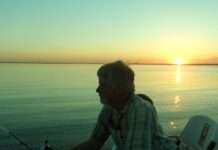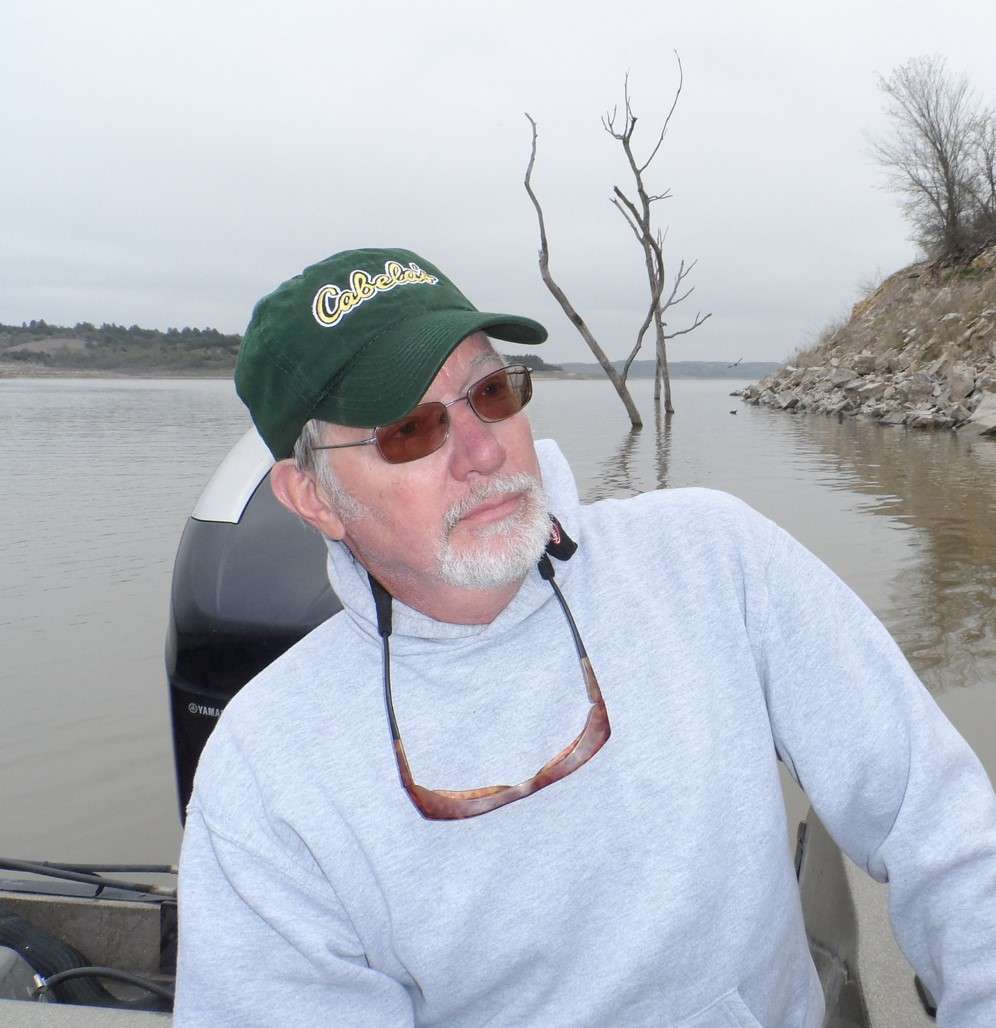Don Johnson and his wife Carole were on a Caribbean cruise in January when Carole took a phone call that dramatically changed the direction of their lives. Don and Carole both had successful careers as manufacturing engineers in England where they lived about an hour south of London’s Heathrow airport. Carole’s company was asking her to move to the U.S. to operate one of their facilities in Kansas. They liked life here in the U.S. and they saw this as an opportunity for Carole to advance within her company, so the deal was accepted. Don had always worked for American companies, so work and vacations had brought them stateside many times to cities like Las Vegas and Manhattan, NY, but upon hearing their destination this time, they looked at each other and wondered aloud “Where’s Kansas?”
Now moving is always complicated and stressful, and even more so when you’re completely changing continents, but in the Johnson’s case, yet another factor entered into the mix. In the U.K. Don was a falconer and had 3 birds of prey and two hunting dogs that all had to be moved also. I asked him why he just didn’t get different birds and dogs when he got here to Kansas and he told me “I see those animals as a lifetime commitment so they had to come along.” In February they bought a home near Wichita and in March Don began the process of getting his birds and the dogs sent here. The dogs, he was told would be no problem, and they in fact could even come on the same flight as he. His birds of prey however were a different story. First he was told by an agent in New York that the birds could not be sent to the U.S. at all. After many hours on the phone with fish and game officials first in Kansas, then in Washington DC and finally in Denver, he was told of a way to obtain a special permit that MIGHT be procured in 60 to 90 days. When he explained that he couldn’t wait that long, a person at the Pratt office of Kansas Dept. of Wildlife, Parks and Tourism found a way to get him that same special permit in just 3 days! So he had the special permit for the birds, both the import and export permits to get the dogs and birds flown here at a cost of $ 8,200, and thought all was well. Nope, not yet! Next he was told the birds would be considered a commercial shipment rather than a pet shipment, which added another $ 2,200 to the price tag. As Don would say “long story sideways,” after starting the process in March, he and the dogs arrived in late May, but his 3 birds of prey not until mid-August, all at the cost of a nice used car.
Johnson has 2 Harris Hawks, a male named Jasper and a female named Megan and a Barn Owl named Zola, all acquired while still in England. Birds of prey kept by falconers must be flown year round as frequently as possible and must be weighed often to keep their weight within certain strict parameters that allow them to fly and hunt. Megan was Johnson’s first bird and she was rescued from a situation where she’d been kept in a tiny 6 foot square enclosure and not flown for 2 years. Johnson kept Jasper 9 months for a friend, then acquired him when the friend decided he didn’t want him back. Zola the Barn Owl was purchased from a breeder in the U.K. who included the word “owl” in all their names; her birth name was “Cinderowla.”
To own birds of prey and be a falconer in the U.K. no license, permit or even knowledge of falconry was required. Here in KS, Johnson will have to navigate a process where he first gets a licensed Kansas falconer to sponsor him as a apprentice, then he’s required to pass a written test with at least an 80%, then have the housing facilities for his birds built and inspected by KS Dept of Wildlife, Parks and Tourism at which point he’ll become an apprentice falconer. After being an apprentice for 2 years he can be issued a general falconer license.
A housing facility for birds of prey is called a “mew,” and Johnson is constructing a beautiful facility with a covered portion with raised perches and an attached flight pen where Megan and Jasper will live when he doesn’t have them out flying and hunting. Zola the Barn Owl will have a pen of her own, and be kept separate from the 2 hawks. The process of getting them acclimated to their new surroundings will be quite lengthy and will begin with allowing them to be free in the mew and flight pen until he feels they will return to his gloved hand when set free to hunt. Harris Hawks are known as “wolves of the sky” and in the wild often hunt in groups. Johnson says Megan and Jasper will hunt with his dogs; as the dogs walk through a field, the birds will set high in nearby trees awaiting the dogs to flush prey, and they will keep abreast of the dog’s progress by relocating from tree to tree as the dogs move ahead.
Don Johnson is anxious to finish construction of the mew so he can get Megan, Jasper and Zola out and about again. Johnson told Joyce and me that he and Carole absolutely love life here in the states and he already knows all his neighbors by their first names, as was apparent as a little girl across the road was calling and waving to him as we left (that’s more than I can say for many of us who’ve lived here for years!) His love of our country is infectious, and I think it would do us all well to listen to a few of his reasons why. Don and Carole Johnson, Jasper, Megan, Zola the Barn Owl and dog Max; yet more good reasons to explore the outdoors here in a land called Kansas!
Steve can be contacted by email at stevenrgilliland@gmail.com.



